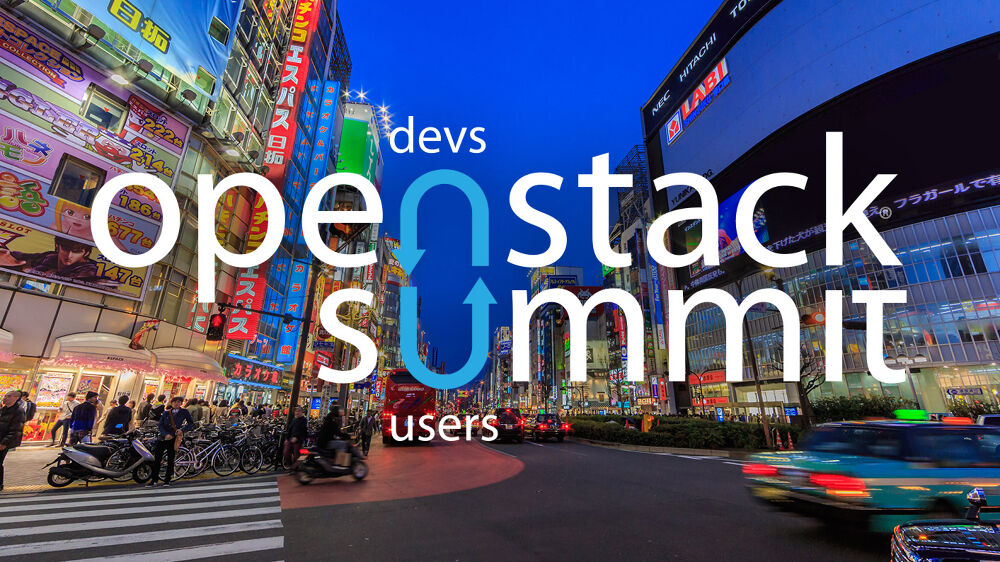When you do a job really well, your reward is often more work.
The same can be said, on a global scale, about cloud technology. As more people and organizations make use of the power and flexibility that a robust, powerful cloud can provide, more demands are placed on the technology, and those of us who operate it must continually evolve to meet demand.
In Tokyo this week, our Elastic Cloud team joins technologists from around the world to address those challenges, and engineer the cloud solutions of tomorrow at the OpenStack Summit.
OpenStack is the world’s foremost open-source cloud platform, and forms the foundation of our Comcast Elastic Cloud, which powers an ever-growing number of technologies and services throughout our company, including our X1 Entertainment Operating System.
We chose to build our cloud on OpenStack in large part because we believe in the dynamism of open-source communities, and in their ability to improve and evolve technologies in a way that is often faster and more efficient than any single organization or individual can match. OpenStack, for instance, runs in 177 countries worldwide and has more than 30,000 people (including myself and a number of my colleagues at Comcast) working to make it better.
The results have been awesome. Our OpenStack-powered cloud has grown dramatically every year 400% since we launched it in 2012, and is now the go-to technology both for our internal development teams and many of our new products and services, such as our Xfinity Share app, which we launched earlier this year.
Our objective now is to continue growing our Elastic Cloud to meet not just today’s demands, but also the needs of whatever our engineers, designers and developers can dream up tomorrow.
Toward that end, one of our key areas of focus in Tokyo will be on the topic of storage. What makes cloud infrastructure so powerful is that it takes the three core functions provided by physical computers – computing, storage and connectivity – and virtualizes them, making them available on-demand, in exactly the right proportions, to anyone using the cloud. That means that as projects, products and services grow or change, you don’t need to change devices to serve them, you can simply dial up or down the resources you need to get the job done.
Storage is a key part of cloud infrastructure. Our Elastic Cloud provides tenants (the term we use to describe the groups of people that use the cloud) with enormous, flexible storage capacity, but as the scale and diversity of our tenant workloads increase, our storage infrastructure must continually evolve. Major tenants are operating more and more of their production services on our OpenStack infrastructure, and each tenant is demanding more from storage: greater capacity, higher request throughput, lower latency. Furthermore, different tenants access storage through different interfaces – block, object, proprietary storage APIs – with different access patterns. I’ll be very interested to see what storage vendors and the OpenStack community are doing to support high performance storage in challenging multi-tenant environments.
In Tokyo, my colleagues and I will work with OpenStack operators, vendors and developers from around the world to meet that challenge. Since the start of OpenStack in 2010, the community has created dozens of new releases and components, each working to make the technology stronger, faster and more flexible.
Of course, at any OpenStack event, there’s too much interesting stuff going on and too little time to do it all. We’re also watching:
-
The OpenStack Super User Award – We were honored to win the OpenStack Foundation’s second-ever Super User Award at the OpenStack Summit in Vancouver earlier this year. Earlier today, it was our great pleasure to pass the baton to NTT Group, which won the award for this Summit.
-
New code, new features – Since we built our Elastic Cloud, we’ve contributed more than 38,000 lines of code to OpenStack, and the summit always provides a great opportunity to see what our colleagues from around the world have been working on for the past six months.
-
Women of OpenStack – I’m proud to be a part of the Women of OpenStack, a group within the community that highlights the effort of females working on OpenStack and works on attracting more women to the community. We donated the two trips to Tokyo that Comcast won as part of the Super User award to the Women of OpenStack, to support travel for two of its members.
We have a busy week ahead of us which we’ll spend giving presentations, sharing stories, participating in panel discussions, coordinating forward development, meeting others developing and using OpenStack and expanding our knowledge. We look forward to continuing a jam-packed and productive week in Tokyo!
